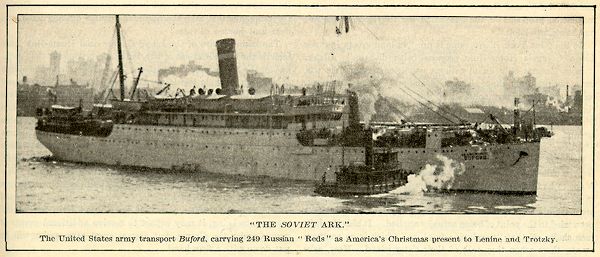December 1, 1904 – W. A. "Tony" Boyle, future president of the United Mine Workers (UMW) was born on this date. (From the Daily Bleed)
December 1, 1908 – As Brazil and Argentina prepared for war, workers on both sides of the border protested. (From the Daily Bleed)
December 1, 1912 – The rustling card system was put into place by the Anaconda Mining and Smelter Company. Agitators were identified by spies and refused cards and jobs. (From the Daily Bleed)
 |
| Ralph Chaplin (public domain) |
December 1, 1914 – The famous labor song, "Solidarity Forever," was written on this date by IWW songwriter Ralph Chaplin. He wrote the song for a hunger march to be led by Lucy Parsons in Chicago (on January 17, 1915).
Solidarity Forever
(To the tune of Glory Glory Hallelijah)
When the union's inspiration through worker's blood shall run,
There can be no power greater anywhere beneath the sun;
Yet what force on earth is weaker than the feeble strength of one,
For the union makes us strong.
[Chorus]
Is there aught we hold in common with the greedy parasite
Who would lash us into serfdom & would crush us with his might?
is there anything left to us but to organize & fight?
For the union makes us strong
[Chorus]
In our hands is placed a power greater than their hoarded gold,
Greater than the might of armies magnified a thousand fold;
We can bring to birth a new world from the ashes of the old,
For the union makes us strong.
[Chorus]: Solidarity forever, Solidarity forever, Solidarity forever,
For the union makes us strong (From the Daily Bleed)
There can be no power greater anywhere beneath the sun;
Yet what force on earth is weaker than the feeble strength of one,
For the union makes us strong.
[Chorus]
Is there aught we hold in common with the greedy parasite
Who would lash us into serfdom & would crush us with his might?
is there anything left to us but to organize & fight?
For the union makes us strong
[Chorus]
In our hands is placed a power greater than their hoarded gold,
Greater than the might of armies magnified a thousand fold;
We can bring to birth a new world from the ashes of the old,
For the union makes us strong.
[Chorus]: Solidarity forever, Solidarity forever, Solidarity forever,
For the union makes us strong (From the Daily Bleed)
 |
| Rust Bucket UST Buford Carrying Its "Christmas Present" of Reds to Lenin and Trotsky |
December 1, 1919 -- US: Alexander Berkman, Emma Goldman and 200 other anarchists, labor militants and radicals were deported to Russia on the Buford. (From the Daily Bleed)
December 1, 1955 - Rosa Parks, a 43-year-old African-American seamstress, boarded a bus in downtown Montgomery, Alabama, and refused to move to the back. She was arrested, triggering a year-long boycott of the city bus system and legal actions which ended racial segregation on municipal buses throughout the southern United States (From Workday Minnesota)
December 1, 1966 – The Youngstown General Duty Nurses Association (YGDNA) became the first nurses in Ohio to engage in a mass resignation or "strike." According to the American Nurses Association, it may have been the first concerted action by nurses in a labor dispute in the nation. (From the Daily Bleed)
No comments:
Post a Comment